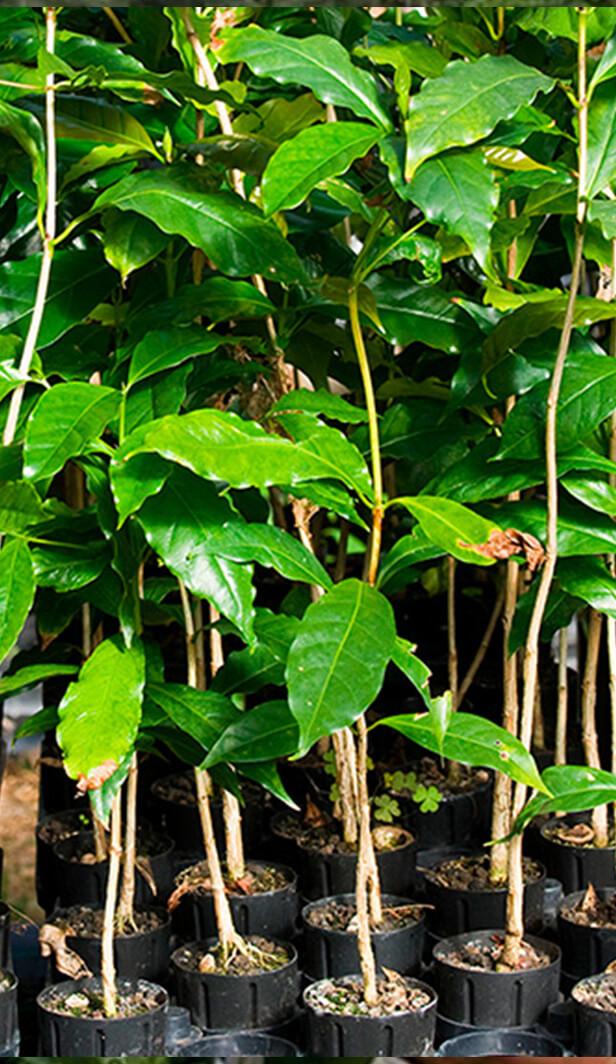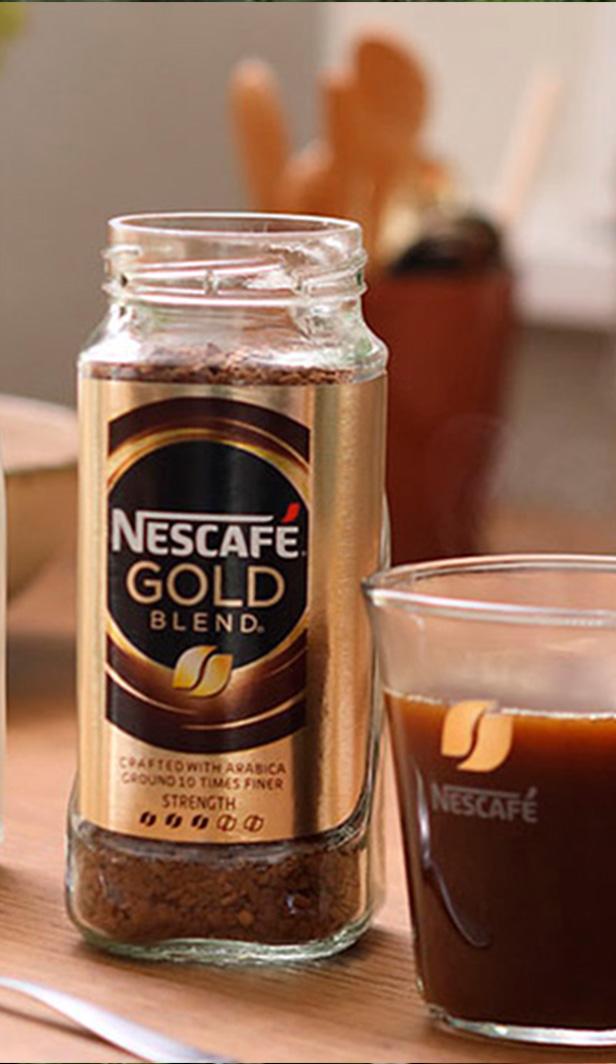SOMETHING IN THE WATER
Water is one of the world’s most precious natural resources and some of our coffee requires a lot of it to grow. At NESCAFÉ®, we value the water needs of local communities.
Today, NESCAFÉ® is helping farmers grow coffee with solutions that aim to protect water resources. In Vietnam, we’ve helped farmers use 50% less water for irrigation than previous official practices, helping maintaining the same productivity, and provided smart weather apps to tell when to turn on the taps and when to turn them off to help conserve water for their villages. In our nearby coffee factories, we’ve helped to improve water efficiency and saved the equivalent of over thousands Olympic sized swimming pools of water every year. Using less water in coffee production helps improve water conservation in local communities, and support the protection of the water cycle. That’s why NESCAFÉ® aims to continue to help farmers do more with less water.

LIKE YOU, WE’RE POWERED BY COFFEE
NESCAFÉ® uses spent coffee grounds to create real energy in most of our factories, reducing tons of waste and greenhouse gas emissions. It’s a simple process where the ground coffee used to brew NESCAFÉ® is repurposed as biofuel to power our steam boilers. In 2021, this circularity helped NESCAFÉ® keep 245,000 tons of CO2e from fossil fuels from entering our atmosphere and sends less waste to landfills that would otherwise be transported by heavy trucks. Like you, NESCAFÉ® cares about the planet and isn’t too proud to reheat our leftovers.

In 2021, by using spent coffee grounds to generate real energy NESCAFÉ® kept 245,000 tons of Co2e from fossil fuels from entering our atmosphere.

GOOD THINGS COME IN GOOD PACKAGES
NESCAFÉ® wants to keep coffee fresh, and our customers informed, while making a positive impact on the planet. NESCAFÉ® aims to provide more sustainable jars, cartons, capsules, and sachets that create less waste, following Nestlé's ambition of 100% recyclable or reusable packaging. In 2025, 95% should already be achieved. By refilling your glass jar with NESCAFÉ®’s light-weight soft packs, you can help reduce your waste with a packaging that uses XX% less packaging weight per gram of coffee, compared to our NESCAFÉ® Gold Blend 200g jar. NESCAFÉ® also introduced the Next Generation of coffee cups, made of 95% paper and using 50% less plastic in their coating. There’s even better news: these cups feature a unique new dispersion coating that is designed to dissolve easily, so they can be processed in paper recycling machines along with normal paper waste (depending on local regulations, of course).
NESCAFÉ® is committed to using more recyclable paper for its in-store print ads. And NESCAFÉ® jar caps now includes 20% recycled plastic on a mass balance approach*. All those initiatives will help Nestlé to reach the ambition of 1/3 reduction of virgin plastic by 2025. When you’re as big as NESCAFÉ®, every positive change helps to make difference.
*(link to the ISCC page to be included) For the light-weight soft pack, each market will need to calcule how much it help reduce packaging weight according which local SKU. Ex, this figure is 97% in Europe

Today’s community favourites




